IAAF Doping Cover-Up Another Nasty Turn In Incessant PED Saga
IAAF Doping Cover-Up Another Nasty Turn In Incessant PED Saga



In my two weeks away from the Flo office, I’ve had some extra time to read a lot of good sports columns and listen to some decent podcasts as well. Some of this was prompted by my mourning of Grantland’s end— I re-read some of my favorite pieces and then subsequently discovered new ones —which had been my favorite sports website for years. Losing Grantland for me was a tough blow, and thus, I had to pay my respects.
Outside of that, the rest of my hyper content consumption was motivated purely by a desire to occupy my athletic thoughts with more than just running, which had me pretty depressed last week, as anyone sick and tired of doping scandals can surely understand.
Anyways, my creative writing nostalgia tour brought me to Bill Simmons’ podcast, which I had always been a big fan of in his Grantland days, but had yet to check out since the ex-ESPNer landed at HBO. On the specific episode that I happened upon, Simmons’ guest was famed author and New Yorker writer Malcolm Gladwell, who just so happens to be a pretty big fan of track and field.
After the host and Gladwell discuss the demise of Grantland, their collective disdain for NFL commissioner Roger Goodell, and NCAA corruption, among other issues, for close to 80 minutes, Simmons starts to close out the show by bringing up one final topic: PEDs. More specifically, Simmons wants Gladwell’s take on this summer’s doping mega-scandal in track and field. With the rare chance to hear the oft-cynical Simmons dish on track’s ongoing mess, my ears perked up. As they say, just when I thought I was out… they pull me back in— a Simmons’ #hottake on track was just too good to pass up.
Here’s what was said:
Simmons: “They had this thing recently, a few months ago. It was after I left ESPN, I can’t remember what month. When the story came out about how they had re-tested all the samples in London from, what was it, track and field and swimmers, and like everyone failed, every single athlete, all of them. It was a 100% failure rate!”
Simmons is exaggerating here for a couple reasons— one, he’s legitimately asking Gladwell to help him remember the facts of the story, and two, he’s setting it up to be a light-hearted moment for himself and Gladwell on the topic of incompetent leadership, which has been the overarching theme of the podcast. Gladwell laughs at Simmons’ distorted understanding of the story, and then quickly uses the platform to discuss more pressing news, which he calls “the biggest story to hit track and field in years.”
Gladwell: “You know the news that broke today, which is that the former head of the IAAF has just been arrested on charges of taking bribes from the Russians to cover up doping violations.”
At this point, you can hear Simmons snickering while Gladwell continues, “So, like the head of track and field internationally, the former head, is now revealed to have been on the tape to cover [sic], it’s like unbelievable, it’s like, this is the biggest story to hit, I mean, very few people in America are track and field fans, I happen to be one of them. This is the biggest story to hit track and field in years.”
Simmons: “I would say believable, not unbelievable. Any of those guys I’m just assuming are getting bribed.”
And that was it. The discussion on the topic pretty much ended after Gladwell voiced his agreement with Simmons’ final remark, which struck a chord with me despite its brevity.
It says something that this massive scandal is only mentioned in the closing moments of the podcast; even in our sport’s darkest hour— with a tale of corruption that would rock any major sport to its core— the story is little more than comic relief for the host of America’s most popular sports podcast. There is just so much gold here, and despite Simmons claiming ignorance by exaggerating the first part, the nail has been driven home nonetheless: track and field is a complete joke. You knew it, I knew it, and even people who don’t give a rat’s ass about track (Simmons) knew it. The former IAAF head taking payments so that positive doping tests can be sent to the shredder is just another example, despite the unprecedented ramifications. (I’ll get to those shortly.)
To me, Simmons in this instance represents the non-track fan’s view of our sport. The fact is, when most people think about track, they think about doping. Outside of Usain Bolt, track only reaches the mainstream sports fan’s consciousness when massive cheating scandals, like those of Ben Johnson or Marion Jones, break. For Simmons, and the rest of America, news of the head of a sport already crippled by cheating accepting bribes seems about par for the course.
What a complete joke our sport is. Even if athletes slip up and test positive, they can still pay a bribe to the top and compete
— Nick Willis (@nickwillis) November 6, 2015
In case you have, in fact, been living under a rock: former IAAF president Lamine Diack’s arrest, in addition to the arrests of his legal advisor Habib Cisse and the IAAF anti-doping director Gabriel Dolle, this past Wednesday on charges of accepting bribes (so far, north of $1 million) from Russia to cover-up positive doping tests is, as Gladwell starts to point out, an atomic bomb to any remaining credibility that track supposedly had left. Diack’s son, Papa, is said to be heavily involved in the crime(s) as well, but conveniently he wasn’t in France to be arrested when the rest of the mob, er, I mean officials, were brought in.
This is the biggest story in years because the most powerful man, a man who was supposed to be protecting clean athletes, appears to have been doing the exact opposite. Why? Because greed, that’s why. A type of greed that valued dollars over truth. Over livelihoods.
A level of greed that makes me feel like an idiot for not thinking was possible. A level of greed that will only serve to further track’s reputation as a completely compromised sport, a sport that has seen so many cheating scandals in its past that a colossal blow like the one delivered last week evokes little more than a yawn from the vast majority of fans here in the States, i.e. a population that I believe is accurately represented by Simmons’ “believable” #hottake.
Our sport was (is?) being run by crooks, and we have the nerve to whine about its lack of popularity? Please. Would you watch the Super Bowl if you knew the refs were being paid off by Goodell? Didn’t think so.
After the tumultuous summer that the IAAF already had, what, with a reported one-third of distance medals won in the last decade likely coming from dopers, and the governing body doing little about it, Wednesday’s news seems like the logical next step for those of us still tuning in to this mess. The reality is that every doping result, positive or not, from Diack’s entire 16-year tenure at the top of track’s governing body is now potentially compromised, as it appears that medals, the most coveted prize in our sport, were essentially for sale under Diack’s reign. File this one under the “Should’ve seen that one coming” category.
And don’t be fooled into thinking that this story is a one-off that only involves the Russians, who have made cheating one of their athletic national pastimes. Plenty more nastiness is about to rear its ugly head. If Diack was taking cash under the table from the sport’s darkest villains, what makes you think his checking account number hasn’t been shared around with anyone who will take it? The revelation that the 82-year-old has likely been complicit in nurturing doping, the biggest threat to sporting integrity, makes any and all performances during his time as head of the IAAF subject to significant ridicule. And by significant, I mean VERY SIGNIFICANT.
Through all of this, and while on the Bill Simmons train, I am reminded of a column he wrote a few years ago in the build up to the 2013 Super Bowl titled “Daring to Ask the PED Question.” The thesis of the piece is that Simmons believes blatant PED use is going on all around us— he uses Ray Lewis’ and Adrian Peterson’s faster-than-usual turnaround from serious injuries and their remarkable performances after the fact as an example, both of which are incredibly suspicious to Simmons— but our collective ignorance, as well as the refusal to question seemingly superhuman athletic achievements without solid proof, allows it to go by the wayside. He writes that the “Sports Fan Me,” the unfiltered Simmons that sees Lewis and Peterson defying conventional wisdom and immediately thinks PEDs, and the “ESPN Me,” the version of Simmons that can’t make such claims without evidence, are at odds, but ultimately the filtered version wins out publicly. This hush-hush policy, according to Simmons, has allowed cheating to grow right before our eyes with little being done about it until it's too late.
Under this same premise, last week’s doping revelations have shown me that I need to view our sport through more of a “Sports Fan Me” lens going forward. The “ESPN Me,” or more accurately, the “FloTrack Me,” looked at every performance at August’s World Championships with an equal, and mostly minuscule amount of suspicion. This while the real me, the one who knows better than to not trust his instincts, witnessed plenty of shady shit. Was I, for example, so foolish to believe that two inconsequential Kenyan sprinters were the only athletes competing dirty from the East African nation in Beijing given their record medal tally? FloTrack Me didn’t give this a second thought, but Sports Fan Me knows that Athletics Kenya is as corrupt as they come.
Sports Fan Me saw plenty of other examples at Worlds, and of course heard the rumblings of other journalists who were thinking the same thing. And now with what’s come out about Diack and the IAAF, I think it’s fair to believe that some of our suspicions were true. The unfiltered sports fan in all of us needs to be able to call out doping when we see it, because it’s very clear that the IAAF, the only line of defense against cheating, hasn’t been.
I can only hope that the floodgates will pour as this story continues to unfold, even as every new report will dig track and field’s grave even deeper. Obviously, things are only going to get worse before they get better, starting with former WADA head Dick Pound’s report on Russian doping to be released on Monday. Expect it to be ugly. Going forward, however, any remaining hope of legitimacy rests in the hands of Diack’s replacement, Seb Coe, who promised to attack doping issues with fervor during his campaign.
But, of course, with what is transpiring with Coe’s former boss, you have to wonder if the former Olympic champion, who had served as the IAAF vice president since 2007, was in on the sham as well. Coe did little to assuage those fears during the summer when he labeled the ARD/Sunday Times report “a declaration of war,” and despite calling the alleged actions of his predecessor “abhorrent” on Saturday, Coe’s previous ringing endorsement of Diack makes the Brit out to be either naive or a liar, whichever you choose to believe.
As for me, I’ll be expecting the worst, knowing that this investigation may ultimately alter much of what I thought I knew about our sport. After last week, Sports Fan Me has taken over, knowing that the status quo has made track and field into the joke that it currently is.
Spent the final hour of my 18 mile long run boiling up about the doping problem in our sport. I cry for the kids coming through.
— Nick Willis (@nickwillis) November 8, 2015
Related Content
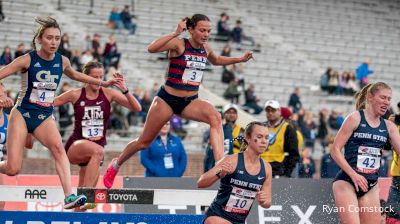 Penn Relays 2024 Results On Day 1: See Who Won
Penn Relays 2024 Results On Day 1: See Who WonApr 25, 2024
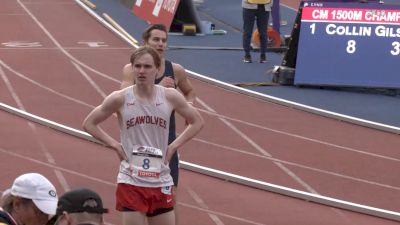 Collin Gilstrap Bursts From Fifth To Win College Men's 1500M At Penn Relays
Collin Gilstrap Bursts From Fifth To Win College Men's 1500M At Penn RelaysApr 25, 2024
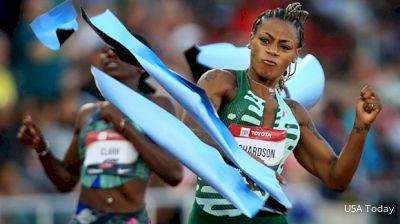 Sha'Carri Richardson, Christian Coleman Set For Wanda DL Shanghai/Suzhou
Sha'Carri Richardson, Christian Coleman Set For Wanda DL Shanghai/SuzhouApr 25, 2024
 Penn Relays Location Is Also The Home To The Best Cheesesteaks In America
Penn Relays Location Is Also The Home To The Best Cheesesteaks In AmericaApr 25, 2024
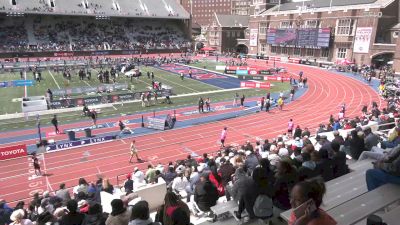 Pro Men's 4x100m Relay Special Olympics, Event 116, Finals 1
Pro Men's 4x100m Relay Special Olympics, Event 116, Finals 1Apr 25, 2024
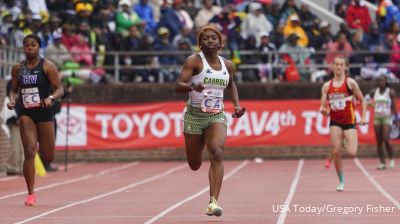 Penn Relays 2024 Schedule Day 1: Here Are Today's Events
Penn Relays 2024 Schedule Day 1: Here Are Today's EventsApr 25, 2024
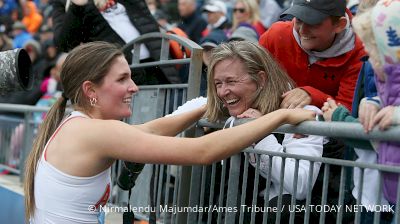 The Drake Relays Are This Weekend In Des Moines. Here's What To Know
The Drake Relays Are This Weekend In Des Moines. Here's What To KnowApr 24, 2024
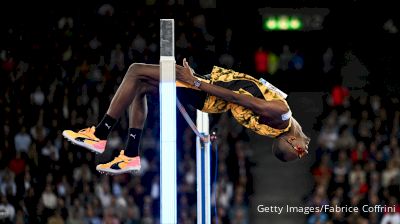 How To Watch The Diamond League Shanghai / Suzhou 2024
How To Watch The Diamond League Shanghai / Suzhou 2024Apr 24, 2024
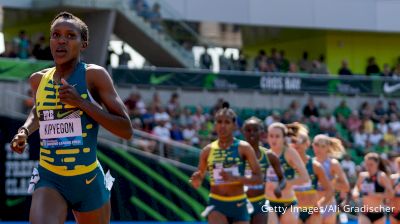 Diamond League Shanghai / Suzhou 2024 Schedule: What To Know
Diamond League Shanghai / Suzhou 2024 Schedule: What To KnowApr 24, 2024